Pediatrics is a field of medicine that studies the development and characteristics of a child’s and adolescent organism, the diseases, their treatment and prevention. Doctors who work in the field of pediatrics are pediatricians (doctors engaged in the treatment of children). To date, pediatrics is called children’s and adolescent medicine. This field of medicine covers several areas of clinical medicine. One of its special features is the emphasis on preventive medical care (preventive medicine), like nowhere else.
There are a large number of medical competencies in the field of pediatric and adolescent medicine:
- Pediatric hematology and oncology deals with the diagnosis and treatment of blood diseases and oncological conditions in children.
- Pediatric cardiology deals with the diagnosis and conservative treatment of congenital and acquired heart diseases, functional cardiac disorders and myocardial pathology.
- Neonatology deals with the treatment of newborns that need intensive care (perinatology, perinatal center).
- Neuropediatrics involves in the diagnosis and treatment of neurological diseases in children.
- Pediatric endocrinology and diabetology deals with the treatment of hormonal disorders in children and treatment of diabetes in children.
- Pediatric gastroenterology deals with the diagnosis and conservative treatment of gastrointestinal diseases.
- Pediatric nephrology deals with the treatment of renal disease when surgical intervention is not required.
- Pediatric pneumology deals with the diagnosis and treatment of respiratory diseases, mainly bronchial asthma.
- Pediatric rheumatology deals with the diagnosis and treatment of chronic inflammatory diseases of the musculoskeletal system.
- Pediatric orthopedics is engaged in correcting pathologies of the musculoskeletal system.
Social pediatrics is of particular importance. It deals with comprehensive care of debilitated children. Though, it is not a separate field of medical activity. Social pediatrics is built on neuropediatrics and it focuses on working with children and adolescents suffering from psychological and physical disorders. Pediatric and adolescent psychiatrists working in this area take comprehensive care of their patients.
Another subject closely related to pediatric and adolescent medicine is human genetics, a scientific field based on clinical research. It makes a significant contribution to the diagnosis of hereditary diseases. Many pediatricians widely use medical genetics to determine the cause of the pathology.
Pediatrics is a field of medicine that does not include surgical methods of treatment. Therefore, modern pediatric institutions are integrated with surgical departments. Pediatric surgery, like pediatric psychiatry, is an independent specialization, while pediatric orthopedics is an additional specialty of general orthopedics and traumatology.
Children are not “small adults”. Not only do they have other diseases and need special, purposeful procedures, but also only highly qualified specialists should take care of them. Such specialists should be able to respond to their specific medical and psychological needs. This assistance is usually provided by a whole team of pediatric nurses, psychologists, nutritionists, diabetes counselors and other professionals who specialize in the special needs of children and adolescents. If hospitalization is required, children and adolescents are accommodated in a special clinic or department for children and adolescents, but not in a hospital ward for adults.
Pediatric Diabetology / Endocrinology
Pediatric endocrinology and diabetology are specialties in pediatrics and adolescent medicine that deal with the treatment of endocrine disorders and diabetes mellitus. Hormones are messenger substances in the body. They ensure a healthy, normal interaction between all organs and systems. These processes in children and adolescents sometimes differ considerably from those in adults. Sometimes typical associated with age hormonal disorders occur that can affect growth, puberty or thyroid function. Diabetes mellitus (sugar disease) in children and adolescents also proceeds quite differently in comparison with adults, so a qualified pediatrician specializing in diabetes mellitus should take care of the treatment process.
What diseases does pediatric endocrinology / diabetology deal with?
- Growth disorders (dwarfism, gigantism)
- Disorders of sex development (early or late puberty)
- Functional thyroid disorders (goitre, decreased function, overactive function)
- Adrenal glands disorders (adrenogenital syndrome, Addison’s disease)
- Pituitary gland disorders (functional pituitary gland disorder)
- Disorders of sex development (hermaphroditism)
- Testicular and ovulation dysfunction
- Disorders of vitamin D synthesis (rickets)
- Obesity
- Low blood sugar (hypoglycemia)
- Disorders of calcium absorption in the body (pseudohypoparathyroidism)
- All forms of diabetes mellitus (sugar disease)
Endocrine disorders and diabetes mellitus in children and adolescents differ from this disease in adults. Therefore, it is necessary to consult a pediatric endocrinologist/ diabetologist who will take care of your child’s health. Such specialists treat children professionally in accordance with their age and characteristics, and also prescribe competent therapy for hormonal imbalance or a special examination if it is necessary.
Pediatric Gastroenterology
Pediatric gastroenterology is a specialty in pediatrics and adolescent medicine that diagnoses and treats diseases of the digestive system and corrects eating disorders. This area includes diseases of the esophagus, stomach, small and large intestine, liver and pancreas.
What diseases are treated by pediatric gastroenterologists?
- Congenital defects of the esophagus, stomach, small and large intestine
- Esophageal diseases (esophagitis, reflux disease, swallowing disorders)
- Diseases of the stomach and duodenum (inflammation of the gastric mucosa, stomach ulcers, Helicobacter pylori infection)
- Chronic inflammation of the intestine (Crohn’s disease, ulcerative colitis)
- Celiac disease (gluten intolerance)
- Food allergy
- Digestive disorders in the stomach and intestines (achalasia, disorder of evacuation of food from the stomach, pseudoobstruction, constipation, Hirschsprung disease)
- Gastrointestinal tract polyps
- Diseases accompanied by diarrhea
- Short bowel syndrome
- Cystic fibrosis
- Disorders of bowel development, insufficient digestion
- Biliary tract diseases (biliary atresia, stones, inflammatory changes)
- Liver diseases (infections, inflammatory changes in the liver, metabolic disorders, elevated blood pressure in the portal vein)
- Cirrhosis of the liver
- Inflammatory changes in the pancreas (pancreatitis, pancreatic insufficiency)
- Therapy of burns as a result of ingestion of acid or alkali agents
- Removal of swallowed foreign bodies
- Gastric tube insertion (PEG ‒ percutaneous endoscopic gastrostomy)
- Transplantation ‒ parenteral (artificial) nutrition at the time of liver transplantation
- Therapy for obesity and its consequences, for example, hepatic lipidosis.
Many diseases of the digestive system have an adverse effect on a child’s growth and development. It is the main difference from adult diseases. Therefore, you need to make sure that your pediatrician works with a professional gastroenterologist who will properly guide the child in accordance with the age and the symptoms of gastrointestinal disease, hepatic disease, pancreatic disease or with eating disorders.
Pediatric Cardiology
Pediatric cardiology is a field of pediatric and adolescent medicine that deals with the diagnosis and treatment of congenital and acquired heart diseases. Congenital heart disease is one of the most common congenital anomalies in people. Since congenital diseases significantly differ from acquired heart diseases in adulthood, treatment of heart diseases in childhood requires special knowledge and many years of experience in this field.
What diseases are in the scope of cardiological competence?
- Congenital heart disease
- Defects of intercardiac walls (interventricular and interatrial septa)
- Heart valve constriction
- Concomitant congenital heart disease
- Hypoplastic right heart syndrome
- Hypoplastic left heart syndrome
- Transposition of the great arteries
- Developmental abnormalities of the great vessels
- Pulmonary veins displacement
- Acquired heart defects
Congenital heart diseases are characterized by very complex defects which are difficult to respond to surgical treatment. Therefore, the successful treatment of children with congenital heart diseases or other cardiac diseases requires accurate monitoring of all features of the heart defect and planning individual treatment. Heart diseases manifesting at birth are considerably different from acquired heart diseases of an adult person. Therefore, children and adolescents with congenital or acquired heart diseases require special medical care which is provided by highly qualified pediatric cardiologists.
Pediatric Nephrology
Pediatric nephrology is a field of pediatrics and adolescent medicine that treats kidney and urinary tract diseases. These include congenital and acquired diseases of the kidneys, renal pelvis, urethra and bladder.
Unlike adult nephrologists, pediatric ones are engaged in specific diseases of children’s kidneys which are fundamentally different from kidney diseases in adults. They practice methods of identifying and treating diseases that take into account the needs of the child. Thus, they take into consideration both medical and psychological peculiarities that arise as a result of a child’s growth and maturation.
What diseases do pediatric nephrologists deal with?
- All congenital malformations of the kidneys and urinary tract (renal cyst formation, anatomical narrowing of the ureter, backward urine flow from the bladder, presence of obstructions in the ureter wall)
- Infectious diseases of the kidneys and urinary tract (from inflammation of the bladder to inflammation of the renal pelvis)
- All forms of nephrotic syndrome (the leading symptom ‒ proteinuria)
- All forms of allergic immunological inflammation of tissues (glomerulonephritis with the leading symptom ‒ blood and protein in the urine)
- Disorders of the renal tubular function (manifested by the loss of salts, high acidity of the blood, the production of a large volume of daily urine ‒ diuresis, and so on)
- High blood pressure which in 95% of cases is indicative of kidney disease
- Acute renal failure (usually due to poisoning of the kidneys by toxic bacteria that enter the baby’s body with raw milk and insufficiently cooked meat)
- Treatment of chronic renal failure in children and its consequences ‒ growth inhibition, impaired hematopoiesis and impaired mental development
- Treatment of acute kidney failure in children, which can be overcome only in a hospital with the help of drug therapy or kidney transplantation. Before transplantation it is necessary to conduct hemodialysis or to implant an artificial kidney device.
Highly qualified doctors fully agree that substitutive therapy for kidney failure in children and adolescents under the age of 18 should be conducted in the department of pediatric nephrology. In addition, the subsequent transition to adult nephrologists should be carried out in stages. There is also a regulation, according to which operations on the urinary tract should always be performed under the supervision of a pediatrician.
Neuropediatrics
Neuropediatrics deals with physical and mental development and possible disorders and diseases of the nervous system in childhood and adolescence. The brain, spinal cord, nerves and muscles can be affected by changes in their condition, harmful effects during pregnancy and childbirth, diseases of various causes and types, as well as accidents and put at risk the optimal development of a person. Therefore, a basic understanding of the biology of our development is needed to identify and treat the factors that affect the development of children and adolescents and, thus, become the subject of neuropsychic studies and concepts of supportive treatment.
What is neuropediatrics?
Neuropediatrics covers a wide range of tasks, starting with the required evaluation of child development in all cases and ending with the treatment of very specific and rare diseases.
Neuropediatrics includes three fields ‒ developmental neurology, movement disorders and treatment of convulsive seizures (epilepsy).
The main task of developmental neurology is to evaluate the physical and mental development of healthy and sick children, including the evaluation of the effectiveness of rehabilitation. An individually developed treatment concept for each individual patient opens up new opportunities for recovery, for example, through physiotherapy, language development, occupational therapy and pedagogy. Continuous care and treatment of children by a neuropediatrician who is familiar with modern methods of treatment makes it possible to plan therapy up to adolescence in the long term in the optimal way.
Movement disorders can occur due to a variety of reasons leading to the complex motor system (brain, nerves, muscles) involvement at different levels.
Neuropediatricians closely cooperate with physiotherapists. Together they develop an individual strategy of treatment which includes both medication and operative treatment to achieve painless mobility and, thus, improve the quality of life.
Based on statistical data, the study and treatment of epileptic seizures (convulsive), epileptology, is a separate field of neuropediatrics. Harmless febrile convulsions are among the most common, and they often lead to emergency situations in pediatrics. Assessment of acute seizures with an explanation of the cause, the choice of further treatment to prevent the development of chronic convulsive disorder (epilepsy) and treatment are the responsibilities of a neuropediatrician. The most suitable for the individual patient drugs should be chosen from a range of effective drugs, and the effect of therapy should be constantly monitored. Sometimes it is necessary to consider the benefits of surgery. Narrow specialist consultations concerning the influence of convulsive disorder on family and social life (school, leisure) are required. The search for a suitable profession in the future is conducted by the epilepsy center and the relevant institutions.
Methods in Neuropediatrics
A large number of research methods are used in neuropediatrics to diagnose and monitor the course of the pathology and its treatment:
- Laboratory analysis of blood, cerebrospinal fluid, tissue samples (for example, muscle)
- Ultrasound examination of the brain and muscles
- Clinical neurophysiology: the most well-known method of examination is electroencephalography (EEG / sleep EEG/ polygraphia), recording electrical signals of the brain. Functional activity of nerves and muscles (NCS and EMG) is studied wholly by the transmitted signal from the organ and the evoked potentials ‒ VEP (visual), SEP (somatosensory), MEP (motor), AEP (auditory).
- Image projection: radiographic examination of the skull, computed tomography and magnetic resonance imaging ‒ these methods are most often used in radiology.
Who do neuropediatricians work with?
Close cooperation with the treating pediatrician is the first priority in order to diagnose and treat the disease as early as possible. It requires regular diagnostic measures. Neuropediatrics is similar to social pediatrics and interacts with it, especially in the field of neurology of development and care of chronically ill patients. The main task is to plan therapy for each patient in a proper way, which is carried out by a group of specialists. It monitors various aspects of complex neurological conditions and their complications. For example, in the case of an impaired motor function, in addition to physiotherapists, the patient will need the help of an orthopedist, if necessary, a neurosurgeon who will determine the presence of brain disorders and consult the treating doctors.
Pediatric Oncology and Hematology
Pediatric oncology and hematology is a field in pediatrics and adolescent medicine that deals with the diagnosis and treatment of cancer and blood diseases.
Cancer in childhood and adolescence is relatively rare. In Germany, for example, approximately 2,000 new cases of one of the 20 types of cancer are diagnosed among children and adolescents. If childhood cancer is not treated, it usually leads to death. However, thanks to innovative therapeutic advances, cancer is becoming increasingly sensitive to therapy. Three of four children, and with some types of tumors even 90% of patients, go on living without restrictions after the disease.
What is childhood oncology/ hematology?
Pediatric oncologists/ hematologists are pediatricians specializing in the field of oncology and hematology. At first, these specialists (like all doctors) studied medicine for at least six years at the university. Then they received training in the specialty direction for at least another five years. In addition, pediatric oncologists/ hematologists should work and study for at least three years in their field of specialization, including two years after becoming specialists.
What diseases do pediatric oncology and pediatric hematology deal with?
Solid tumors (oncological diseases):
- Tumors of the central nervous system (brain and spinal cord)
- Neuroblastoma (adrenal tumor)
- Wilms tumor (nephroblastoma)
- Rhabdomyosarcomas and other soft tissue tumors
- Malignant neoplasms of bones
- Thyroid carcinoma
- Neoplasms of the liver
- Germinal tumors
- Retinoblastomas
- Cutaneous neoplasms
- Other rare neoplasms
Diseases of the hematopoietic system and bone marrow (oncohematological diseases):
- Leukemia
- Malignant lymphoma (Hodgkin’s disease, Hodgkin’s pseudolymphoma)
- Myelodysplasia (MDS)
- Langerhans cells histiocytosis (LCH)
More diseases of the hematopoietic system (non-oncohematological diseases):
- Severe aplastic anemia
- Neutropenia (congenital)
- Anemia (haemolytic, hyporegenerative, congenital/ acquired)
- Thrombocytopenia
- Hemophilia and other diseases caused by the reduction in the number of blood cells
Where do pediatric oncologists / hematologists work?
Treatment and care of children and adolescents with oncological diseases or blood diseases cannot be performed by one doctor; they require close cooperation between pediatric oncologists/ hematologists, radiotherapists, surgeons, pathologists, pediatric psychologists, nurses, social workers and many other employees specializing in the treatment of children with oncological diseases. Therefore, most pediatric oncologists/ hematologists work in medical centers, where there are other specialists, and they all work in a team ‒ mainly in university clinics of children’s and adolescent medicine, as well as in children’s clinics or children’s departments of municipal or church hospitals with relevant departments. Most specialists offer consultations on an outpatient basis.
Children and adolescents are not a “small copy of an adult”. They develop other types of cancer than adults, and they need a specially worked out professional treatment which will include all the possibilities of modern therapy, and the side effects and long-term effects will be minimized. An intensive strategy of treating children and long periods of observation require close cooperation with the entire team of doctors and other professionals that can be involved during the treatment process of children and adolescents.
Children and adolescents with cancer or suspected cancer should address to a pediatric oncological medical institution which ensures optimal therapy in accordance with the latest scientific results and qualified (medical, nursing and psychosocial) care. The treatment of children in these centers is based on standardized treatment plans that are prepared by the specialists in the field of pediatric oncology in accordance with the latest advanced information and many years of knowledge.
Pediatric Pulmonology
Pediatric pulmonology or pediatric pulmonary medicine is a specialty in pediatric and adolescent medicine which deals with the treatment of respiratory diseases in children. The respiratory system starts with the nose and also includes the area of the paranasal sinuses, ears, throat and larynx with trachea and bronchial tubes that end in the alveoli. Newborns, infants, children and adolescents have a number of disorders, the causes and symptoms of which differ considerably from the course of the same diseases in adults.
What diseases does pediatric pulmonology deal with?
- Bronchial asthma
- Chronic pulmonary diseases due to premature birth/ bronchopulmonary dysplasia
- Cystic fibrosis/ mucoviscidosis
- Primary ciliary dyskinesia/ Kartagener syndrome
- Congenital airway abnormalities (laryngomalacia, tracheomalacia)
- Chronic bronchitis and inflammatory lung diseases, pneumonia
- Respiratory regulation disorder (apnea syndrome)
- Snoring and obstructive sleep apnea syndrome (OSAS)
- Interstitial lung diseases (paramyxovirus, sarcoidosis and other diseases)
Highly qualified pediatricians who work in the field of pediatric pulmonology (treatment of children’s lung diseases) constantly extend their knowledge in the field of their main specialty. They are the key specialists who are the first to face undifferentiated childhood diseases.
Pediatric Rheumatology
Rheumatic diseases are disorders associated with the musculoskeletal system, i.e. with joints, tendons, muscles and others. Many rheumatic diseases can affect the internal organs or nervous system, skin or eyes. The spectrum of rheumatic diseases in childhood is quite wide and varies from congenital bone diseases to inflammatory and non-inflammatory forms of rheumatic diseases, rheumatism and its complications.
Inflammatory rheumatic diseases are characterized by inflammation of one or more joints (arthritis), connective tissue (destruction of collagen fibers) and/ or blood vessels (vasculitis). Joint rheumatism in children and adolescents (juvenile idiopathic arthritis), that is, chronic inflammation of the joints of unknown etiology, is a prototype of inflammatory rheumatic disease in childhood and adolescence. This is certainly the most common childhood inflammatory disease.
Across the country, about 20,000 children and adolescents suffer from chronic inflammatory rheumatic diseases. The leading symptom in most cases is inflammation of an unknown cause. About 1 in every 1,000 children under the age of 16 suffers from rheumatic inflammation every year. This joint inflammation is often mild and is resolved in 8 to 9 of 10 children after days, weeks or months of treatment without leaving permanent joint changes.
What diseases do pediatric rheumatologists treat?
- Inflammatory and non-inflammatory disorders of the musculoskeletal system
- Systemic autoimmune diseases
- Autoinflammatory diseases, including genetic fever syndrome
- Vasculitis
- Pain syndromes of different etiology
Rheumatism developed in a child does not resemble rheumatism in adults. There are even special forms of the disease that there are not observed in adulthood. In addition, the frequency of complications with chronic inflammation of the eyes (uveitis) that can lead to blindness is much higher in children. Causal treatment of rheumatoid arthritis in children and adolescents is not yet possible. Treatment depends on the form and severity of the disease. It includes medical, physiotherapeutic, physical and ergotherapeutic measures in addition to psychosocial care of the child and members of the family.
Leading Pediatric Hospitals
Clinical Center Friedrichshafen
MD, a specialist in neonatology, and neyropediatrii epileptology Udo Radlow – chief doctor of the Department of Pediatric and Adolescent Medicine Clinic in Friedrichshafen in Germany, under whose guidance annually treats more than 1,500 children. Our clinic offers new opportunities for effective pediatric care in areas such as neyropediatriya, pediatric cardiology, pediatric gastroenterology and sonography. Treatment of children is realized by modern patterns that form an active and comfortable therapeutic interaction. In the department of orthopedic treatment of children minimally invasive techniques aimed at correcting the pathology of the musculoskeletal system. Gastroenterological treatment of children accompanied by modern endoscopic diagnosis, enabling the early stages of the violation occurs. Demand is also a psychosomatic treatment of children, where high-class specialists psychological and clinical techniques eliminate chronic diseases without surgery. Range of services to the children’s department center Friedrichshafen in Germany to fully support holistic healing the body of young patients.
CIM Clinic
Department of Pediatric Surgery Clinic CIM in Germany – a perfect diversified infrastructure that offers surgical treatment a wide range of pediatric diseases. Treatment of children in the surgical department combine several specializations: Maxillofacial Surgery, andrology, urology, visceral surgery, orthopedics, ophthalmology, and many others. Surgical treatment of children covers a wide range of issues, including: surgery hernia formation (abdominal and inguinal), hydrocele and varicocele treatment, removal of benign cysts, surgery to correct frenum.
Particular attention should be given surgical treatment of children with intrauterine growth pathologies due to the impact of minimally invasive system that has been successfully used in endoscopic examinations of the gastrointestinal tract, urethra, bladder and ureter. It has branch has modern equipment such as an operating microscope, laser technology Neodym-Yag-Laser, and also the newest ultrasonic devices.
Clinic Stuttgart
Professor, MD Steffan Lofa – pediatric surgeon, pediatrician, director of the Clinic Stuttgart in Germany. Unique specialist has 20 years of experience, which implements the treatment of children in accordance with the latest scientific discoveries. Treatment of children to meet high medical team consisting of 15 doctors, among them you can find physiotherapists, psychologists, speech therapists, social workers, teachers and others. Treatment of children in the clinic involves modern operational services: burn surgery, surgery to remove the problems of the abdominal and thoracic cavities, cancer surgery, pediatric urology operative correction of congenital deformities, surgery of the esophagus, treatment of short bowel syndrome, cryotherapy, laser therapy, therapy biofeedback. Clinic Stuttgart managed to create a comprehensive treatment of children through close cooperation with other leading medical centers: Children’s Hospital Mutlangen, Ludwigsburg Clinic, Center Eichert and others.




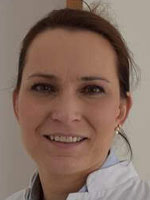
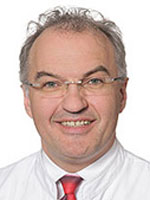



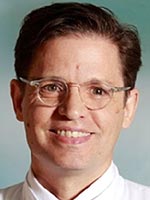


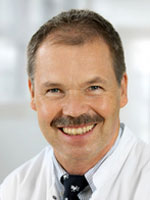
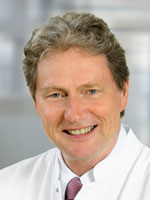



 Loading ...
Loading ...


